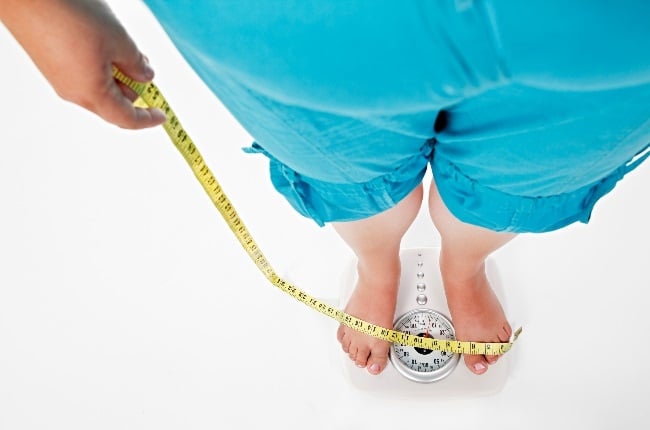
There are few things as frustrating as doing all the things you’re supposed to do to shed some kilos but finding your weight just won’t budge.
“Sometimes it’s not as simple as just ‘eat less than you burn’ when it comes to weight loss,” says Tamlyn Maree, a family physician at Hutton Medical Wellness Centre in Plettenberg Bay.
There are a variety of medical conditions that can cause your weight to increase as well as make weight loss and management even more of a struggle than it already is.
Here are some of the most common things that could be thwarting your weight-loss plans.
IT COULD BE YOUR GUT HEALTH
Your gut microbiome – all the microorganisms in your gastrointestinal tract – plays a big role in many systems in your body. The better the balance between “good” and “bad” bacteria in your gut, the better it metabolises food and manages your satiety.
A gut microbiome that’s out of balance doesn’t digest or store food effectively and can lead to you not feeling full – and therefore eating more. A diet high in processed foods and added sugars is a leading cause of an unbalanced microbiome.
A 2018 analysis in the medical journal Genes linked supplementing with a probiotic (helpful bacteria) with a significant decrease in participants’ BMI, weight and body fat. Probiotics keep your intestinal bacteria balanced while prebiotics (found naturally in many fruits, vegetables and wholegrains) feed the good bacteria in your gut.
IT COULD BE YOUR GENETIC MAKEUP
“Some of us can eat plenty of junk food and burn through it in no time, while others have one burger and it will count towards stored kilojoules,” Maree says. “We’re all programmed to use food differently and uniquely.”
Our genes play a role in what’s known as our weight physiology – our rate of metabolism, body-fat distribution, satiety, food cravings and how we respond to exercise. Our genes also impact inherited behaviour – the types of foods you choose to eat and whether you use eating as a way to cope with stress, for example.
READ MORE | These comfort foods will make you feel good and keep the kilos off your waistline
But there are ways to manage genetic-related weight gain, says Mir Ali, a California-based general and bariatric surgeon. He recommends at least 30 minutes of exercise five days a week, increasing daily water intake to 3,2 litres for men and 2,2 litres for women and increasing fibre to help with satiety.
IT COULD BE THE MEDICATION YOU’RE ON
Some medication can affect your metabolism, stimulate your appetite, increase water retention or contribute to fatigue – making you less active. These include some medications used to treat diabetes, depression, epilepsy and high-blood pressure as well as some steroid hormones.
“Here the trick is to weigh up the risk versus the benefit,” Maree says. “If your antidepressant, antidiabetic agent or contraceptive is causing your weight to increase or not shift, you might need to consider changing it or taking a lower dosage. Speak to the doctor who prescribed it. If the benefit of the medication outweighs this risk, however, you may have to remain on it and find other ways to lose that weight.”
If you need to keep taking it but you’re also determined to do something about your weight, consider consulting a dietician who can guide you on how to change your diet to achieve the results you want.
IT COULD BE AN ENDOCRINE DISORDER
The endocrine system is the collection of glands that produce the hormones that regulate everything from metabolism to sexual function, sleep and mood.
Some endocrine disorders affect weight management and if not treated can lead to obesity, heart disease and Type 2 diabetes, says endocrinologist Zane Stevens of the Cape Institute of Endocrinology.
Endocrine disorders that can make it difficult to lose weight include:
- Hypothyroidism This occurs when the thyroid gland, which regulates metabolism, doesn’t produce enough of certain hormones and as a result burning off kilojoules takes longer, which leads to weight gain. An endocrinologist can prescribe medication for this condition.
- Polycystic ovary syndrome (PCOS) is characterised by hormonal imbalance and metabolism problems and can lead to insulin resistance, which hampers weight loss. Medication, a healthy diet and exercise can help to manage weight and alleviate some of the symptoms.
- Menopause This phase of life is marked by hormonal changes which make losing weight difficult. The natural loss of muscle mass and increase in fat at this time mean that if you don’t make dietary changes and increase activity to combat it from the get-go, weight management could be challenging.
IT COULD BE YOUR MENTAL HEALTH
The relationship between excess weight and mental health is challenging and becomes a vicious cycle, says Shai Friedland, a clinical psychologist based in Blairgowrie, Gauteng.
“When someone struggles with weight management due to their mental health, their weight can then also further exacerbate their mental-health issues.”
However, the link between mental health and weight can be used to an advantage, he says – when one area is improved, it often naturally improves the other.
He suggests the following:
- Remember the things we don’t feel like doing when struggling with our mental health are exactly the things we need to do to feel better. So 70-80% of the time choose to do the things that are beneficial for your mind and body – eat healthily, get enough sleep, exercise, learn a new skill and socialise. It will become easier to do over time.
- Don’t be too rigid about your workout routine and eating plan as this can have a detrimental effect on your mental health if you give yourself a hard time for not sticking to it. It’s important to have a plan but flexibility and balance are just as important.
- Consider consulting a therapist, even if it’s online or via telephone.
Yes, it really is harder for women to lose weight! But there’s more to it than that.
“Men tend to have more lean muscle tissue so they burn kilojoules, even during rest,” says Zane Stevens of the Cape Institute of Endocrinology. “When men and women cut the same number of kilojoules, men usually lose more weight, more quickly. But it’s short-term. In the longer term, weight loss tends to be fairly even between the genders.”
OTHER POSSIBLE CULPRITS
These things can hamper your weight-loss efforts:
- Too little sleep A 2019 study in the International Journal of Obesity found that of the 2 000 participants observed over a year, those with less variability in sleep patterns were more likely to lose weight successfully.
- Not being active enough Diet alone won’t cut it when it comes to weight loss and management.
- Our obesogenic environment “In the obesogenic environment in which we live, it’s so easy to become overweight that it’s becoming the norm rather than the exception,” says Hayley Cimring, nutrition team leader at The Heart and Stroke Foundation South Africa. “Unhealthy foods are constantly in your face, where you live and work makes exercise or walking to work difficult or unsafe, healthier foods are more expensive than junk food and we’re sitting for most of the day.”
- Eating more than 5ml (1tsp) of salt a day This can cause your body to retain more water, which can show up on the scale as extra kilos.
- Losing weight too quickly “Cutting too many kilojoules too quickly will slow your metabolism,” Cimring says. “A slower metabolism will slow down your weight loss, even if you eat the same number of kilojoules that initially helped you lose weight.”
EXTRA SOURCES: HEALTH.HARVARD.EDU, EVERYDAYHEALTH.COM, URMC.ROCHESTER.EDU, NATURE.COM, MAYOCLINIC.ORG, WEBMD.COM, HEALTHLINE.COM




 Publications
Publications
 Partners
Partners




















